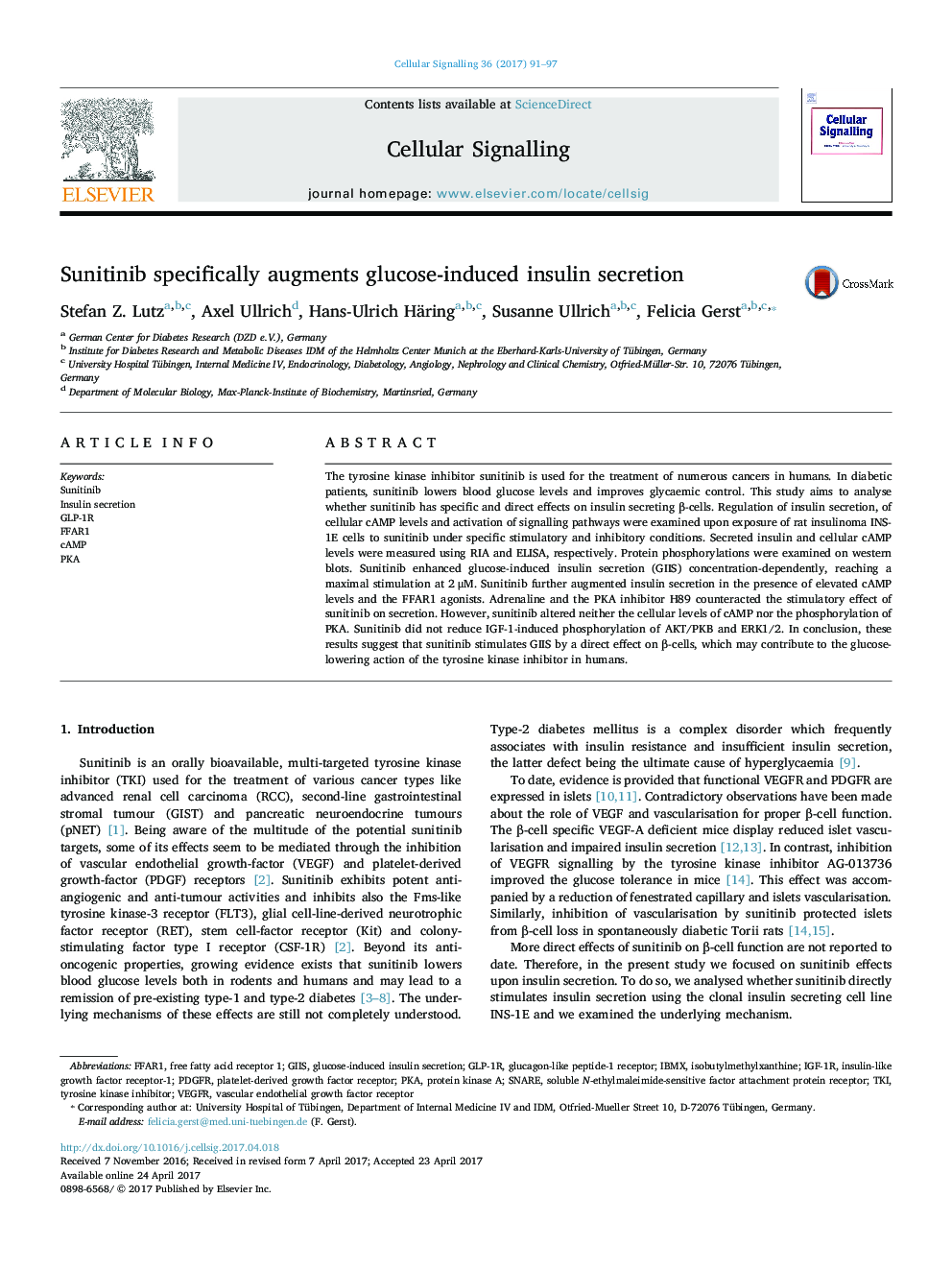| Article ID | Journal | Published Year | Pages | File Type |
|---|---|---|---|---|
| 5509217 | Cellular Signalling | 2017 | 7 Pages |
Abstract
The tyrosine kinase inhibitor sunitinib is used for the treatment of numerous cancers in humans. In diabetic patients, sunitinib lowers blood glucose levels and improves glycaemic control. This study aims to analyse whether sunitinib has specific and direct effects on insulin secreting β-cells. Regulation of insulin secretion, of cellular cAMP levels and activation of signalling pathways were examined upon exposure of rat insulinoma INS-1E cells to sunitinib under specific stimulatory and inhibitory conditions. Secreted insulin and cellular cAMP levels were measured using RIA and ELISA, respectively. Protein phosphorylations were examined on western blots. Sunitinib enhanced glucose-induced insulin secretion (GIIS) concentration-dependently, reaching a maximal stimulation at 2 μM. Sunitinib further augmented insulin secretion in the presence of elevated cAMP levels and the FFAR1 agonists. Adrenaline and the PKA inhibitor H89 counteracted the stimulatory effect of sunitinib on secretion. However, sunitinib altered neither the cellular levels of cAMP nor the phosphorylation of PKA. Sunitinib did not reduce IGF-1-induced phosphorylation of AKT/PKB and ERK1/2. In conclusion, these results suggest that sunitinib stimulates GIIS by a direct effect on β-cells, which may contribute to the glucose-lowering action of the tyrosine kinase inhibitor in humans.
Keywords
Related Topics
Life Sciences
Biochemistry, Genetics and Molecular Biology
Biochemistry
Authors
Stefan Z. Lutz, Axel Ullrich, Hans-Ulrich Häring, Susanne Ullrich, Felicia Gerst,
